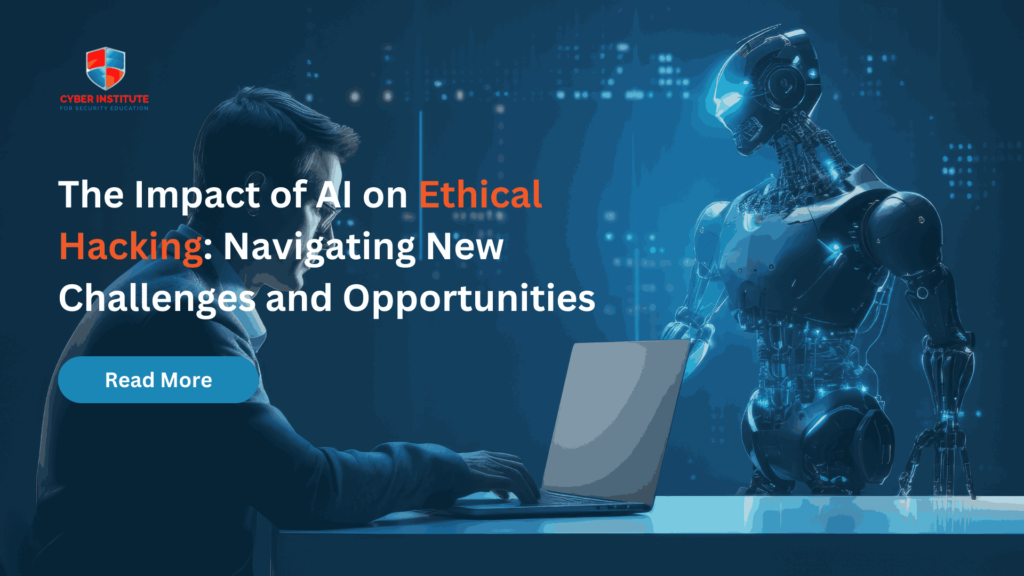

The Impact of AI on Ethical Hacking: Navigating New Challenges and Opportunities
Artificial Intelligence (AI) is rapidly changing the world around us, and the field of ethical hacking is no exception. As AI continues to weave its way into the fabric of cybersecurity, it brings with it both fresh challenges and exciting opportunities. For ethical hackers—those dedicated professionals who work to uncover and fix security vulnerabilities—keeping up with these changes is crucial to staying ahead in the fast-moving world of cyber threats. A key ally in this evolving battle is the Cyber Institute for Security Education (CISE), which plays a vital role in boosting the skills and effectiveness of ethical hackers in an increasingly AI-driven landscape.
How AI is Shaping the Threat Landscape
AI is significantly altering the nature of cyber threats. On one side, it has provided malicious actors with powerful new tools to launch attacks that are more sophisticated than ever before. For instance, AI-powered malware is becoming smarter, learning how to adapt and evade traditional security defenses. These AI-enhanced attacks are more precise, persistent, and tougher to spot, posing a serious challenge for those tasked with defending against them.
Take phishing attacks, for example. These have traditionally been scattershot, relying on human error and mass distribution. But now, AI-driven phishing can sift through vast amounts of data to create highly personalized and convincing fake emails. These emails are not only more likely to bypass security filters but can also deceive even the most cautious users.
Then there’s the unsettling rise of deepfake technology. Deepfakes use AI to produce eerily realistic fake videos or audio clips, which can be used to impersonate people or spread false information. In the wrong hands, deepfakes are a powerful tool for manipulation, whether it’s for personal gain, fraud, or even political meddling.
The Silver Lining for Ethical Hackers
But it’s not all doom and gloom. While AI introduces new challenges, it also arms ethical hackers with advanced tools to bolster their efforts. AI-driven security tools can automate tasks that ethical hackers used to do manually, like scanning for vulnerabilities or detecting potential threats. These tools can process massive amounts of data in real-time, spotting patterns and anomalies that might indicate a security breach before it escalates.
Machine learning, a branch of AI, is especially useful here. By training machine learning models on large datasets of known vulnerabilities and attack methods, ethical hackers can anticipate and identify new threats before they’re exploited. Machine learning also enhances intrusion detection systems, enabling them to automatically respond to potential threats in real-time.
Moreover, AI can help in creating more secure systems from the ground up. For example, AI tools can assist ethical hackers in identifying weak spots in code during the development phase, allowing these issues to be fixed before the software is even released. This proactive approach can significantly reduce the risk of future cyberattacks.
The Role of CISE in Empowering Ethical Hackers
The Cyber Institute for Security Education (CISE) offers a framework that deeply integrates security practices throughout the software development process. By weaving CISE into the fabric of ethical hacking, organizations can ensure that security isn’t just an afterthought but a continuous and essential part of their operations.
CISE focuses on continuous monitoring and testing at every stage of development. This fits perfectly with the capabilities of AI, as AI-driven tools can automate many of the security checks that CISE requires. For instance, AI can automatically scan code for vulnerabilities every time an update is made, ensuring that any potential security flaws are caught and fixed in real-time.
Additionally, CISE encourages collaboration between different teams within an organization—developers, security experts, and ethical hackers alike. AI can support this collaboration by providing real-time insights and analytics that can be shared across teams, making sure everyone is on the same page when it comes to identifying and mitigating threats.
By combining CISE with AI-driven ethical hacking, organizations can build a stronger, more proactive security stance. Ethical hackers can use AI to stay ahead of emerging threats, while CISE ensures that security is woven into every step of the development process.
Conclusion: The Impact of AI on Ethical Hacking in an AI-Driven World
The impact of AI on ethical hacking is profound, bringing with it a mix of new challenges and opportunities. As cyber threats become more complex and sophisticated, ethical hackers must adapt by embracing AI-driven tools and methodologies like CISE. By doing so, they can enhance their capabilities, stay ahead of new and evolving threats, and ensure that security remains a fundamental part of the development process. In this AI-driven world, the role of the ethical hacker is more critical than ever, and the integration of CISE will be key to their continued success.